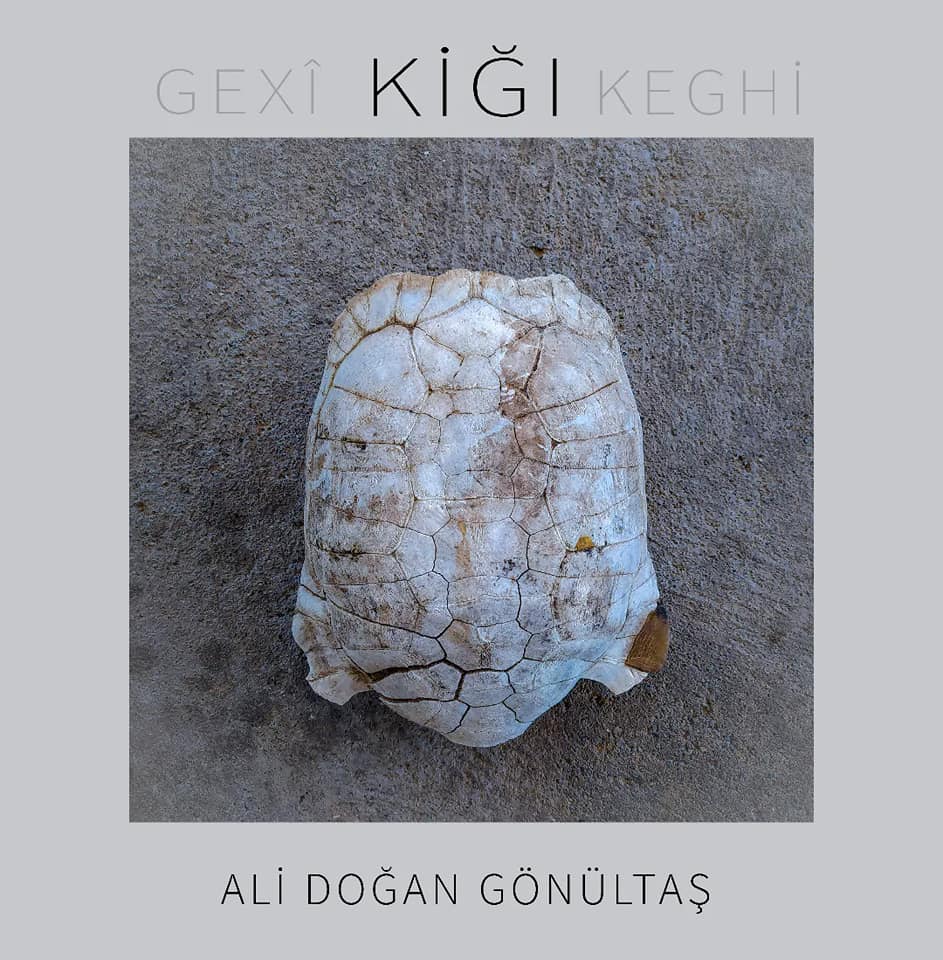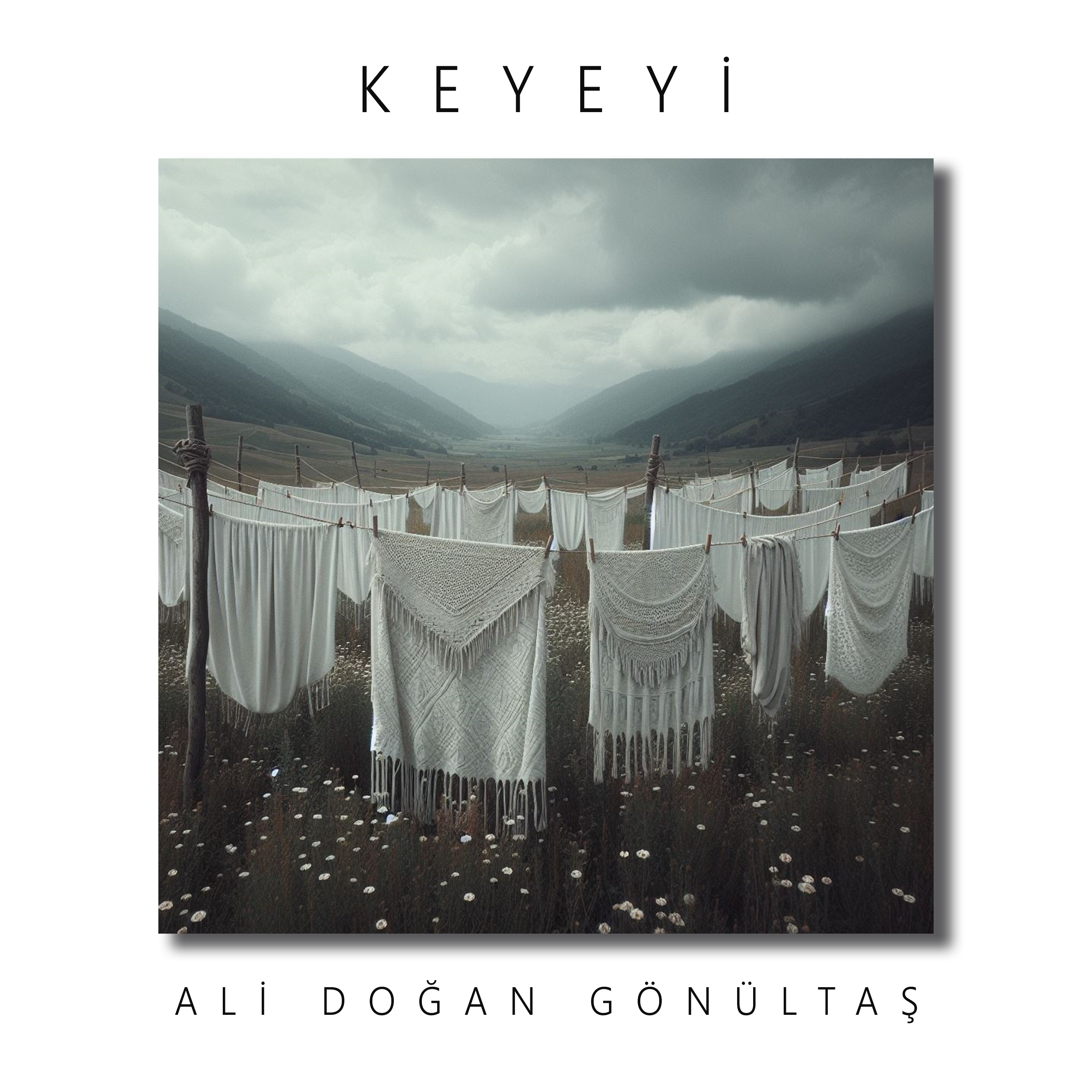Ali Doğan Gönültaş was born in the mid of 1980s in Kiğı, a rural village in the rugged mountains of Eastern Anatolia, in a Kurdish family for whom, as is the case with most Alevi families, music is an essential way of transmitting the history of their people. Soon after, the family had to emigrate to the city. Already in Istanbul, the kid Ali was encouraged by his teachers and elders to sing. Because he already had that gift—the gift of the natural musicality, which he refined through his artistic activities and composition work.
Throughout 2022 and 2023, Ali performed in 18 countries across Europe and the Middle East, including prestigious venues such as Fundação Gulbenkian (with a sold-out Grande Auditório, seating 1,203) and Elbphilharmonie Hamburg (featuring one trio performance and another with dengbêj Saîdê Goyî, both sold out).

Before, that his time at university studying archaeology and cinema (he is graduated from Kocaeli University Archeology and Radio TV and Cinema departments) provided him with a deep focus on research and source analysis, as well as the ability to translate that background into a highly captivating artistic and communicative language. Heritage, talent and stagecraft.
The musician started his professional music career with the band Ze Tijê, of which he is one of the founders and author of many of the compositions and arrangements, as well as performer of several instruments and the lead singer. They made hundreds of concerts in Turkey and released two studio albums “Yanlışımız Var!” (2015) and “Ur” (2019), in a postrock, collage and experimental genres.
Since 2018, he has been continuing his music production with his solo concert series “Xo Bi Xo”. This project, in which the musician includes songs in Kurmanci and Turkish as well as Zazaki, his mother tongue, has an experimental feel to it as well as traditional styles and themes.
Ali began his oral history and field research studies in 2007. The result was his first album, Kiğı, outcome of fifteen years of research, conversations with elders and work on musical arrangements. In Kiğı, Ali sheds light on the languages and cultures of silenced minorities in Turkey, such as the Kurds and Armenians. Kiğı, which is also the birthplace of the musician, describes the specific musical language and style of an Anatolian/Mesopotamian settlement. The album paved the way for performances on prominent European stages.
Ali contributed to the soundtracks of films such as My Own Life (2014) and Şeng (2021). He took part in the project titled “Voice of the City as an Example of Intangible Cultural Heritage (Diyarbakır)” as a composer.
In 2020, he prepared and presented the television program “Voices and Traces” for Can TV. The program, which consisted of conversations and musical performances, was about non-mainstream musical genres and schools in Turkey. In 2021 and 2022 he is presenting and producing the TV show “Müzik Olayı” also for Can TV.

In 2022 Ali Doğan was signed by the son of the old master Seîdê Goyî, a dengbêj (singing storyteller) of traditional Botan music, to arrange the pieces and be the producer of the EP Stranên Dilê Min (songs of my heart, in Kurdish) (available to listen here).
I n June of 2023, the album Kiğı is re-edited with a more extended booklet and in physical CD, by Mapamundi Música. In November 2023, the jurors of the Preis der deutschen Schallplattenkritik, the German Record Critics’ Award, recognised the production as the Quarterly Critic’s Choice in the Category Traditional Ethnic Music. And in August 2024, Ali’s second album, Keyeyî, would be awarded too.
n June of 2023, the album Kiğı is re-edited with a more extended booklet and in physical CD, by Mapamundi Música. In November 2023, the jurors of the Preis der deutschen Schallplattenkritik, the German Record Critics’ Award, recognised the production as the Quarterly Critic’s Choice in the Category Traditional Ethnic Music. And in August 2024, Ali’s second album, Keyeyî, would be awarded too.
Kiğı was #1 in the Balkan World Music Charts in the second quarter of 2022 and #11 in September for the Transglobal World Music Chart. Kiğı is available to listen here.
 On April 30th of 2024 the second solo album by Ali, Keyeyî, was released. It was recorded in video and audio. Take a look and listen, here. Keyeyî has been awarded by the Schallplattenkritik and was #1 in Transglobal World Music Chart of June 2024, #1 at the Balkan World Music Chart 2nd Quarter of 2024 and Top of the World for the magazine Songlines in the edition of August 2024.
On April 30th of 2024 the second solo album by Ali, Keyeyî, was released. It was recorded in video and audio. Take a look and listen, here. Keyeyî has been awarded by the Schallplattenkritik and was #1 in Transglobal World Music Chart of June 2024, #1 at the Balkan World Music Chart 2nd Quarter of 2024 and Top of the World for the magazine Songlines in the edition of August 2024.
In the live show, Ali sings and plays tembur and acoustic guitar and is accompained by Ali Kutlutürk on the percussions and Fırat Çakılcı on the clarinet. Sometimes the band is extended to a quartet with Emrah Ogüztürk on mey, zurna and duduk.
In 2024 Ali is selected to perform at the official program of WOMEX, the main fair and conference of world musics.

